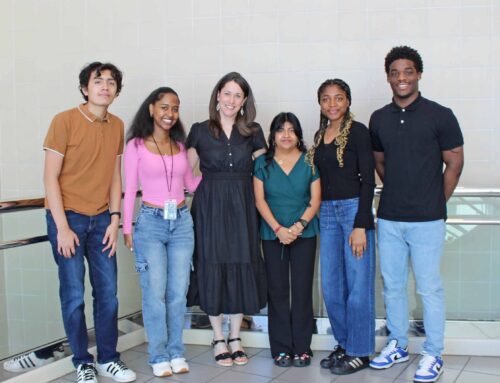I’m a mom and an optimist. Both of my children attended public schools in our neighborhood and graduated from Lake Highlands High School. So I had trouble understanding why our Texas Legislature has not been able to pass a school funding bill that would adequately fund our public schools – you know, enough money to attract and keep qualified teachers (like the federal No Child Left Behind law requires), to educate all of our children, rich and poor alike, and to allow our local school board to make choices that make sense for our community.
Then I really had trouble understanding why our legislators could not manage this task when forced to by the Texas Supreme Court. But finally they did, after several (I lost count) special sessions. And then I realized (I often have a difficult time seeing issues from the same perspective as our legislators) that the issue in Austin wasn’t really school funding; it was lower property taxes. So now we have HB1, a new property tax bill, in the guise of a school funding bill. If you don’t believe me, try reading the first 18 pages without your tax accountant at your side.
To find out what HB1 means to our schools and our children, I spoke with Tony Harkleroad, Richardson ISD’s assistant superintendent and CFO. Here’s what he told me:
Our district’s property tax rate dropped 17 cents this year, and next year it will drop another 33 cents. (For the owners of a $250,000 home, that means a savings of roughly $257 this year, and another $693 next year.) The loss in local property tax dollars will be made up with state funds, harking back to the pre-Robin Hood system. Recapture is still part of the funding formula, but this year RISD, which the state considers a “property-wealthy” district, will be sending $15.4 million to “property-poor” districts, rather than the $40-plus million it sent last year.
This sounds good for our wallets, but here’s the problem: If we want any extra money for our already financially strapped neighborhood schools, we aren’t going to find much of it in HB1. It does provide a $2,000 raise for teachers and an extra $275 per student in ninth- through 12th grades for college readiness programs. Plus, HB1 allows RISD to raise the tax rate another four cents for “enrichment” without voter consent (which, so far, it hasn’t), and another two cents in 2008-09 with voter consent.
But that’s it – no other provisions were made to adjust for inflation, improve teacher-student ratios, provide for classroom resources or to allow taxing decisions at the local level. This is a bill that depends on current surpluses and robust future economic growth for adequate funding. What will happen when the state decides it doesn’t have the funds to send to local districts? That’s how we ended up with Robin Hood in the first place.
This summer, our state legislators gave us a stop gap measure when it comes to funding our public schools – a bill that buys our schools a couple of years before RISD has to start slashing budgets. Already, a group calling itself the Lake Highlands High School Academic Boosters has raised private funds to pay for things such as TAKS tutoring and dry-erase boards. If we can’t afford even these basic needs, what’s going to happen when LHHS has to hire additional math and science teachers to meet higher graduation standards in the coming years?
The politicians preaching the “lower property taxes” gospel aren’t telling us the other side of the story.
A lot of voters realized the need for change before November’s election. Consequently, Lake Highlands will have a new state representative in Austin when the next session convenes. Allen Vaught campaigned on public school reform – reducing class size, drawing more certified teachers back to the classrooms and developing realistic accountability measures.
Let’s give Mr. Vaught our support and hold his feet to the fire.





